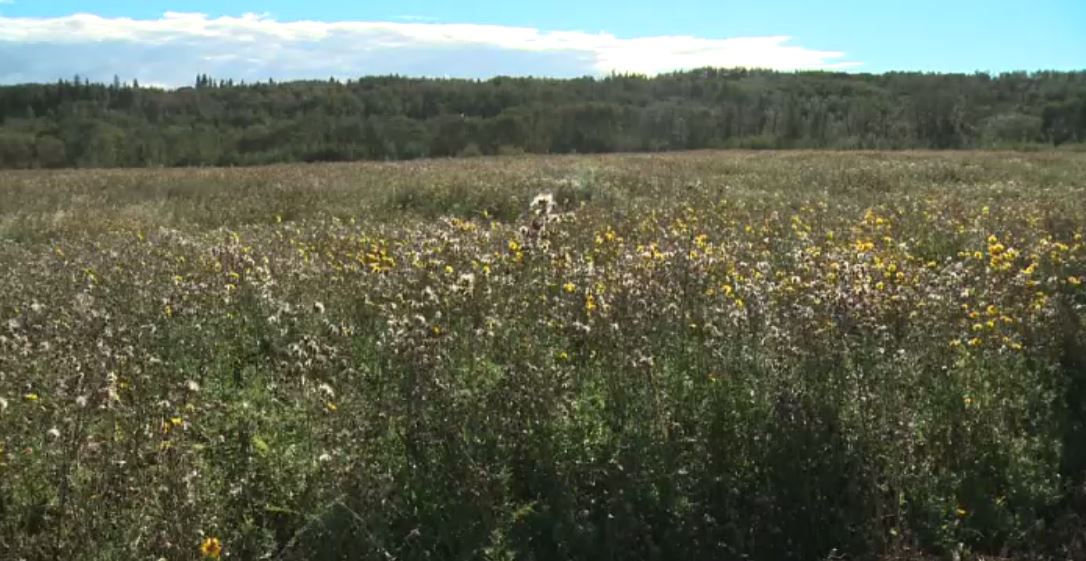Epcor is looking to Edmonton city council to rezone land next to its E.L. Smith Water Treatment Plant.

The proposal is a 51-acre solar farm in the river valley in the city’s southwest that would cost $25.9 million.
The grid would connect solar panels directly to the plant and a battery storage system.
Sixteen months ago, a similar hearing was held and lasted three days, with dozens of speakers worried about the environmental effects. At that time, council asked Epcor to do more community consultations and re-evaluate if the project needs to go in that specific spot.
Since then, the company has reduced its footprint by 18 per cent and expanded the wildlife corridor by 25 per cent.
Epcor will transfer 31.5 acres of land from the water treatment plant site to the city to use for trails and conservations.
“We did go back and continue to find opportunity to improve and enhance the project,” E.L. Smith Solar Farm project director Craig Bonneville said.

Get breaking National news
“We find it a real opportunity to provide momentum on that transition for energy change.”
The site is located on former Enoch Cree Nation reserve lands.
In September, Epcor signed a memorandum of understanding with Enoch Cree Nation to respect and honour history. The partnership is meant to show mutual benefit from the continued operations and potential expansion of the water treatment plant.
Along with the energy produced, the project would offer research opportunities to post-secondary institutions like NAIT and the University of Alberta.
The hearing at council started Tuesday. Forty-seven speakers signed up, with 13 of them working on the project. Twenty-seven people are against it.
In its presentation to city council, Epcor said some of the expected environmental and social impacts are loss of wildlife habitat, restrictions on wildlife movements, avian mortality through crashes with solar panels and reduced opportunities for low-impact recreational trails.
The hearing is expected to last at least another day, which is scheduled for next week.
“Solar plants shouldn’t be in the river valley. Period,” Jayne Carre said.
Carre is an avid birdwatcher and worries about migration patterns if the solar farm is built. She said birds sometimes confuse solar panels for water and will land too hard on them, killing or injuring themselves.
Gerry Brin has worries about disturbing land with historical significance. He questions if this goes ahead, what it could mean for future development.
“This is just a Trojan Horse for more development in the river valley. The question is: do we want the river valley for recreation or for industrial development?” Brin said.
“There is a lot of land that you can put those on. They can go anywhere but not in this area.”
The project has already received regulatory and environmental approvals.








Comments
Want to discuss? Please read our Commenting Policy first.